“Be Free” is artist and sangoma, Desire Marea’s latest offering ahead of his sophomore album release—On the Romance of Being—recorded live with thirteen musicians, including Andrei Van Wyk, Sanele Ngubane, Portia Sibiya and more, due to come out on April 7th.
Reviewing the single and its video for Brooklyn Vegan, Amy Geiger writes that “Be Free”, is “a sprawling track with incisive lyrics and constantly-shifting instrumentals. The song swings from jazz to gospel to almost-punk to rival and complements Desire’s expressive vocals”. And speaking to Geiger about the track Desire shares:
One of my heroes, Marlon Riggs, said ‘Black men loving black men is THEE revolutionary act’. ’Be Free’ is a love story about two black men loving each other through the crisis of masculinity. It’s set in South Africa’s hyper-masculine world of taxi gangs, one of the many places where gay men exist often under a layer of oppression that’s in addition to the homophobic violence of the world at large. It was important for me to tell this story because love, even under such conditions, is always a story worth telling. And freedom is always something worth fighting for.
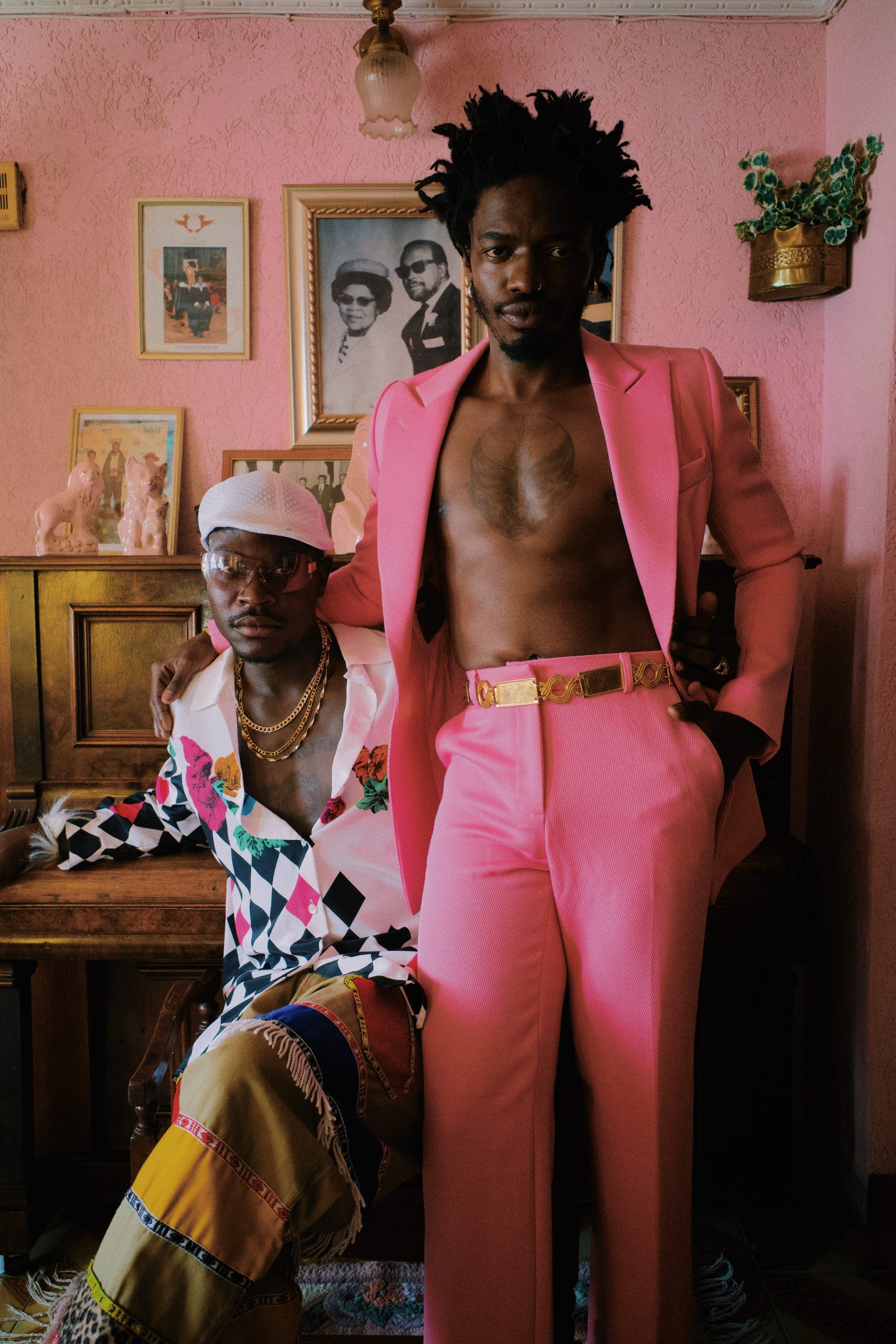
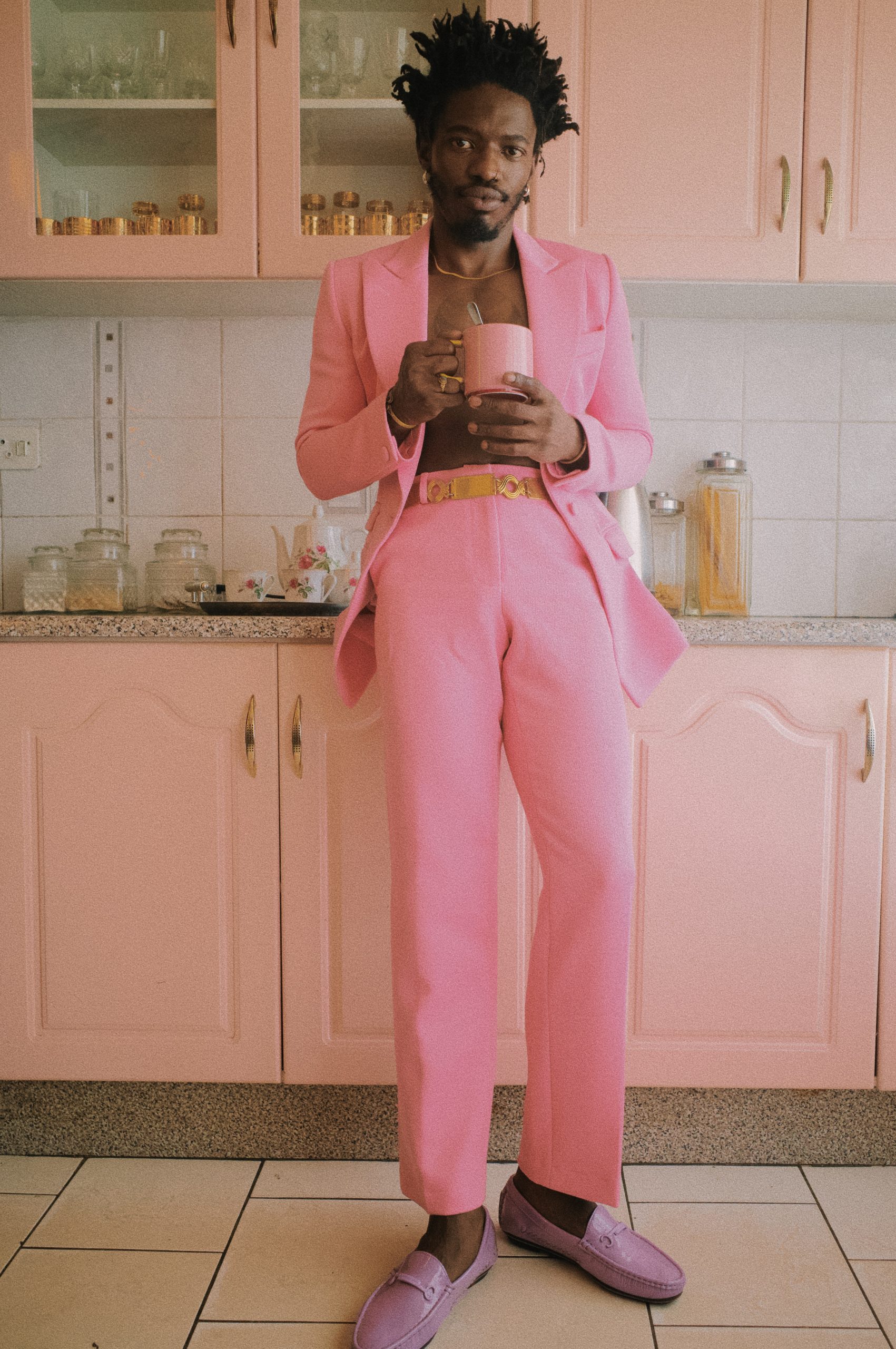
As I read Marea’s words, I think of Saidiya Hartman’s Wayward Lives, Beautiful Experiments. Her world-building and life-affirming exercise offers an account that attends to the beautiful experiments—that make living an art—undertaken by those Riotous Black Girls, Troublesome Women and Queer Radicals often described as promiscuous, reckless, wild and wayward. Where living and loving become Weapons of Mass Construction, become scripture and salvation in practice, loosening History’s hold. Defining waywardness Hartman writes:
Waywardness is a practice of possibility at a time when all reads, except the ones created by smashing out, are foreclosed. It obeys no rules and abides no authorities. It is unrepentant. It traffics in occult visions of other worlds and dreams of a different kind of life. Waywardness is an ongoing exploration of what might be; it is an improvisation with the terms of social existence, when the terms have already been dictated, when there is little room to breathe, when you have been sentenced to a life of servitude, when the house of bondage looms in whatever direction you move. It is the untiring practice of trying to live when you were never meant to survive.
The video for “Be Free” starts with Desire/desire walking bare-chested, gold necklaced and noosed, through an expanse of foliage that seems to stretch out into forever. A pulsing baseline—“Denterente Nte nte-nte. Denterente Nte nte-nte-nte”—can be heard. Born from the electric heartbeat of Adam and Adam’s Paradise Lost. As Desire/desire continues on his path, the scene transforms into another world, here, we meet him in the cover of darkness walking through a street which could be located in any of South Africa’s townships, before he enters a taxi lit purple—a colour often associated with manjiek and the occult—Desire/desire sings, wide-open with tethered feeling, staring straight and stripped into the camera, “I tried to love you babe, you don’t want to be free.”
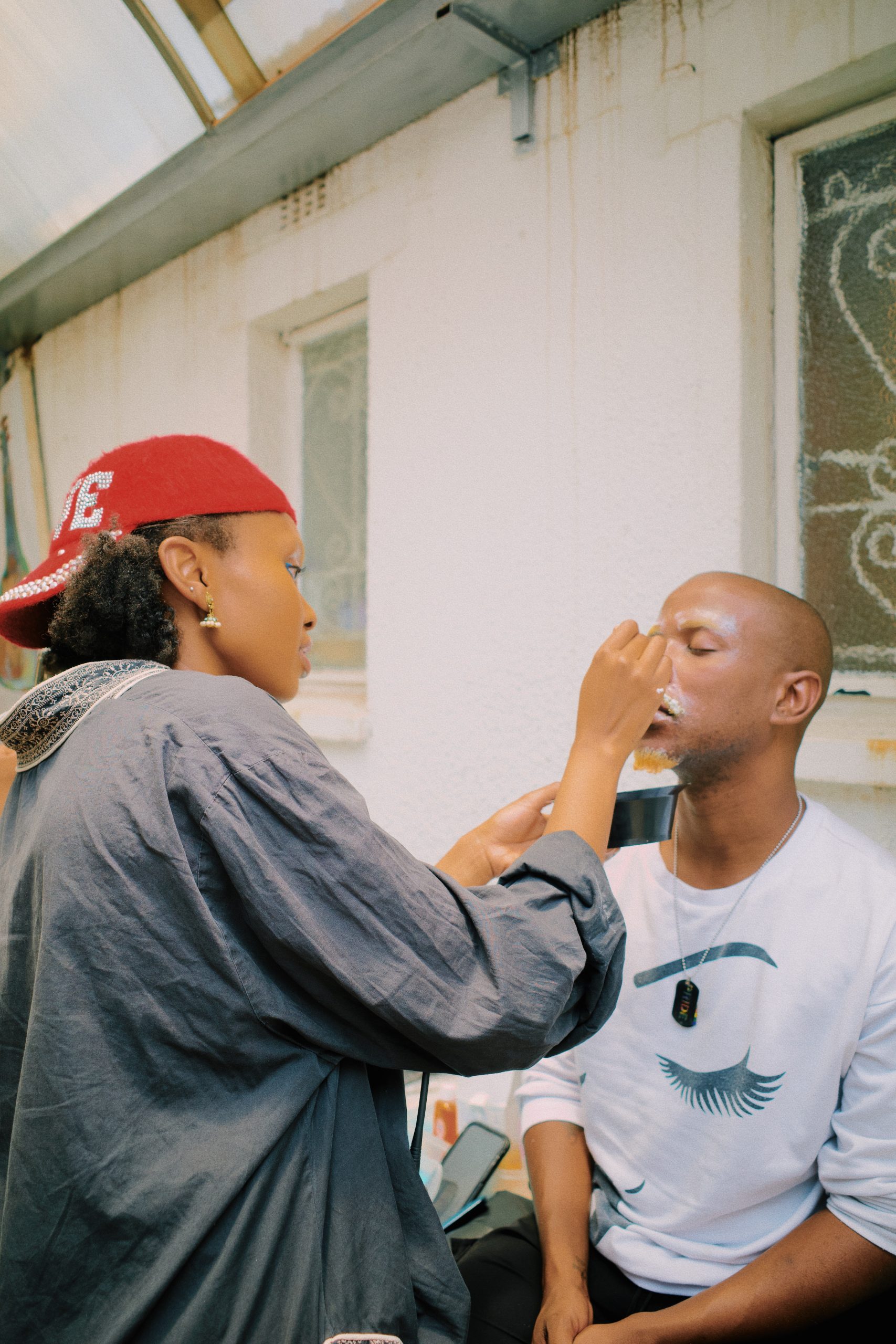
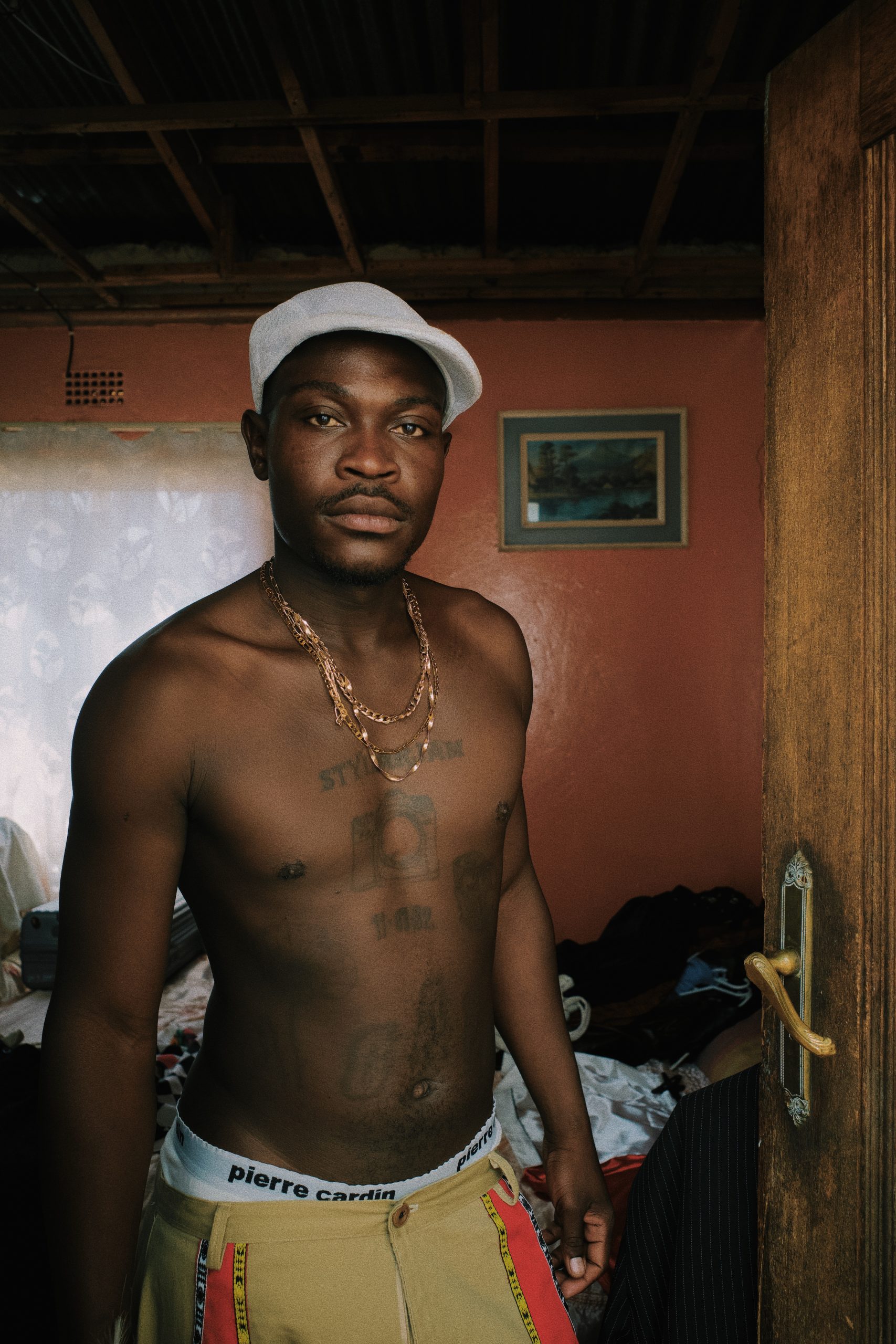
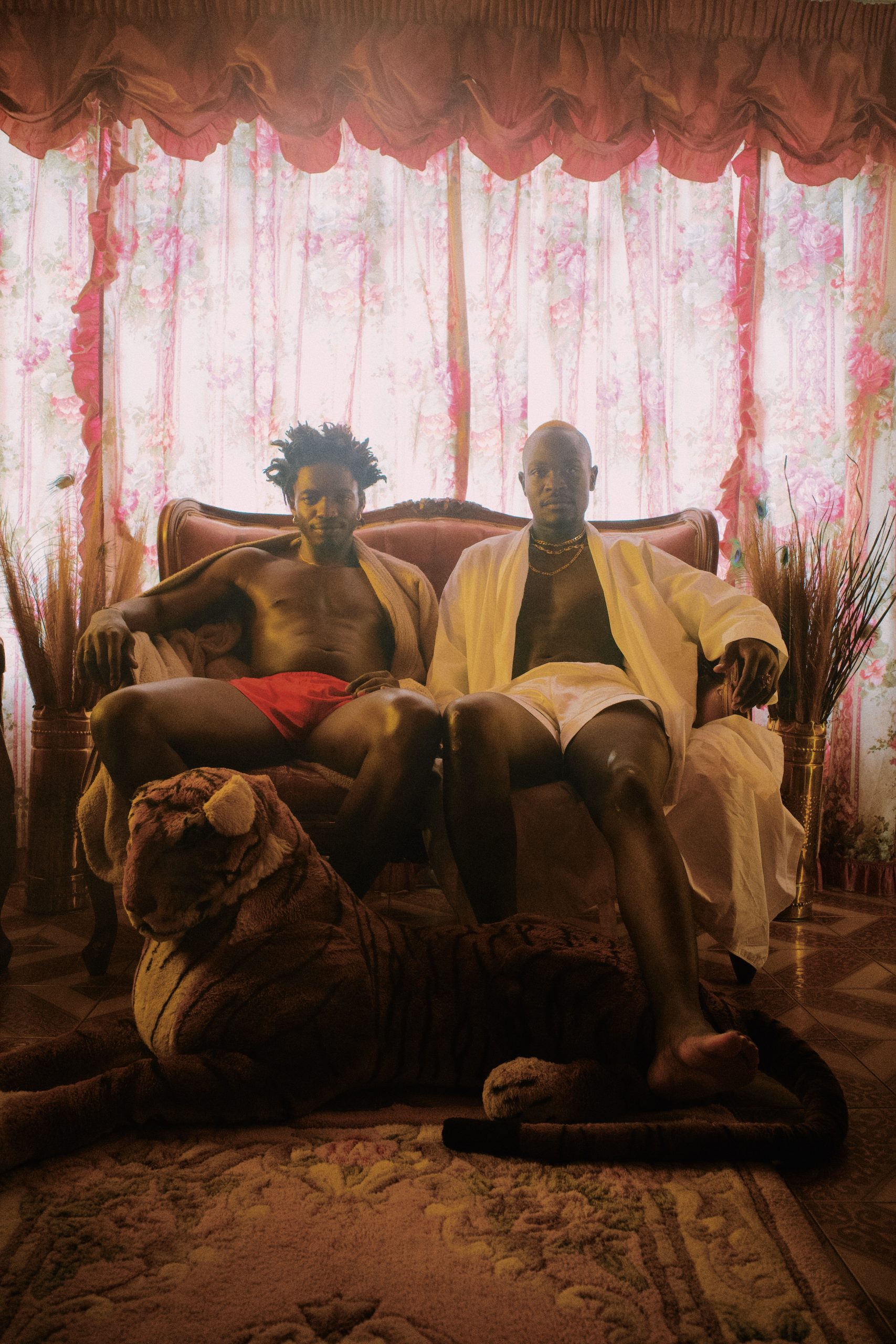
As I watch and listen, I can’t help but think of “Be Free” as the lingering, haunting and haunted echoing plea, first formed in the belly of Desire/desire’s Desolate David fabulated in “You Think I’m Horny“. In a piece I penned 3 years ago for Bubblegum Club titled “Contemplating Joburg’s Other Queer Genealogies” and prompted by the research and writing of academic Ndjaka Mtsetwene, I write:
With my return to the big old city and return to my old CBD stomping ground, I have found myself wondering a lot of the history of inkotshane.
Attempting to imagine in what rotting-with-touch-and-time buildings one can find traces of this queer history, down which winding avenues, nestled in which hostels? Perhaps, because my mind and tongue have been trained in interpreting articulations of queerness from a point of whiteness, I do not easily see the descendants of Joburg’s inkotshane—abo’malume and abo’bhuti—with a bounce to their step on the streets, and an arch in their back between the sheets.
What I’d give to see a queer love story unfold in Jeppestown. This line of questioning, unsurprisingly also brings up issues of visibility around articulations of queerness and homonormativity, not to mention internalised bias, for lack of a better word. For who would first conjure up a tender queerness when thinking of words to describe a “traditional Zulu man,” one would imagine existing in those spaces. The work of queering the world knows no end. There is no conclusion I seek to arrive at or riddle I’d like to iron out. Perhaps, ultimately all I have is a question that’s brewing. Joburg, where do all your queer Malumes roam?
“So, this is where I find them,” I think to myself, “in this Paradise Lost and Unpromised.” Although love is universal, it certainly isn’t singular in its manifestations. Some of this has to do with its collisions with History, politics, subjugation and violence, and with the Love Laws created by this wreckage, “that lay down who should be loved. And how. And how much.” (Roy, The God of Small Things).


Nom’ inkomish’ i-empty na
Mina mfethu ngiyak’gcwala
Kodwa wen’ uyasab
Vele why uyigwala
Thanda ngath’ uyathandaza
Thanda ngath’ uyakholwa
Ukuthi usomandla
Nezingelosi zakhe
Bakuphe into enhle mfan’
Sings Desire/desire, a minute and 37 seconds into the song, in a chiaroscuro bathroom—bathtub full and filled with water, and two bathing Black men—candles enclosing this leaky altar of Love as a weapon of Mass Construction. Mass as in an entanglement of try. Mass as in “the liturgy of the Eucharist”. Mass as in “a quantity or aggregate of matter usually of considerable size”, and mass as in “to form or collect into a mass” Merriam-Webster. There is something about Love that makes it the most painful kind of hope there is to have, to paraphrase the words of American fantasy writer Rae Carson. When stuck in a death dance with History, there is something about Love’s painful kind of hope that makes it more weighted. So each time we Wretched of the Earth choose to Love, to make our wayward lives beautiful experiments—in spite of and because of—we open up portals to a space that is our place of existing otherwise. “Thanda ngath’ uyathandaza, thanda ngath’ uyakholwa.”
III.
in the world that is not this one
all the crushed glass in their back
transmutes into crystalline feathers. they are
sainted: the winged patron of grieving wolves
A howl to the moon
a clarion call for every ghost left haunted
‘back into your graves!’
Even the dead need rest
In the world that is not this one
we will stalk the plains of our suffering and
call every sadness by its name
make a meal in this tundra
we will eat until we are full
and weep until we are drowned
Kopano Tiyana Maroga, “Wings” in Jesus Thesis and Other Critical Fabulations
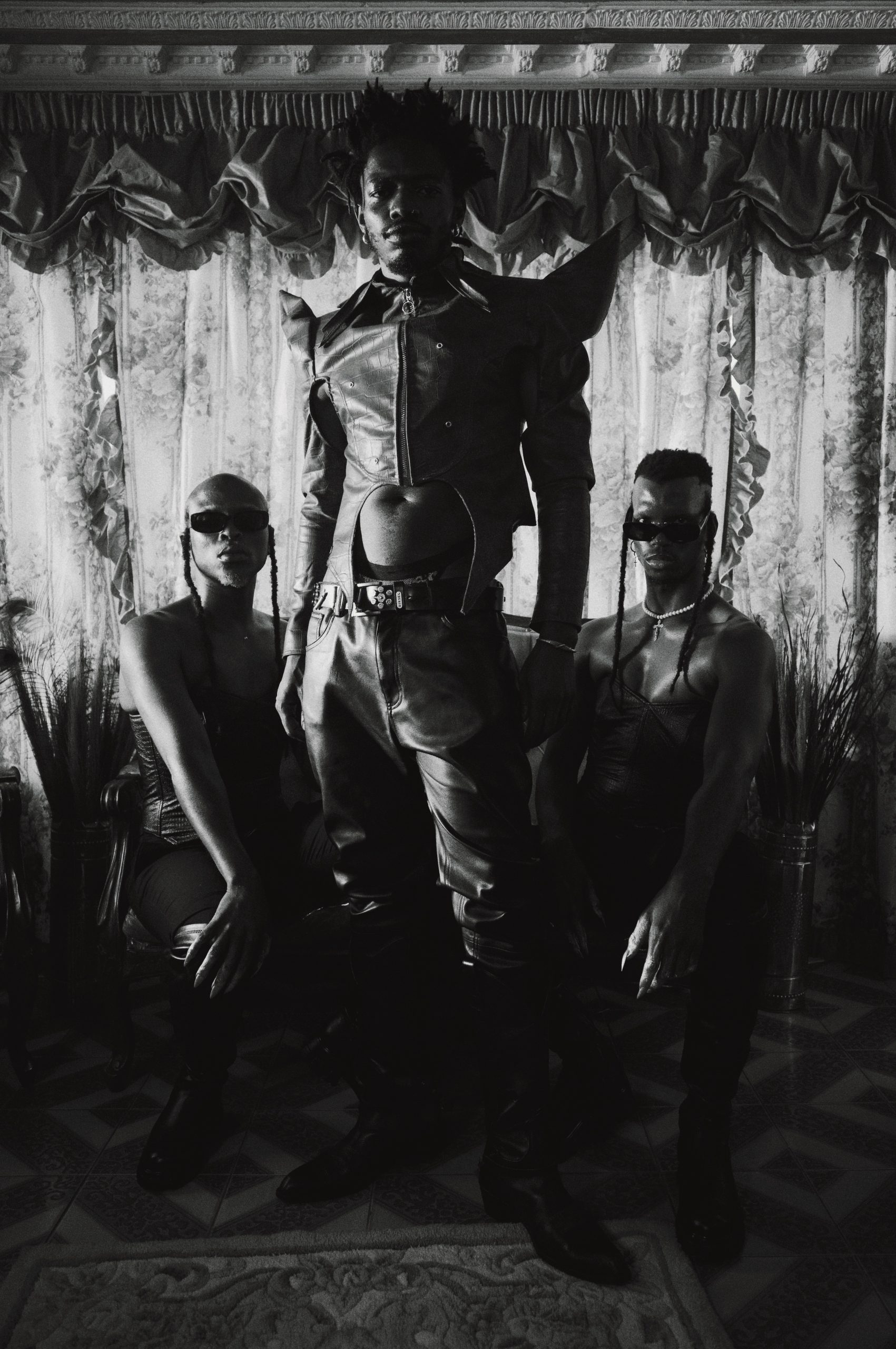
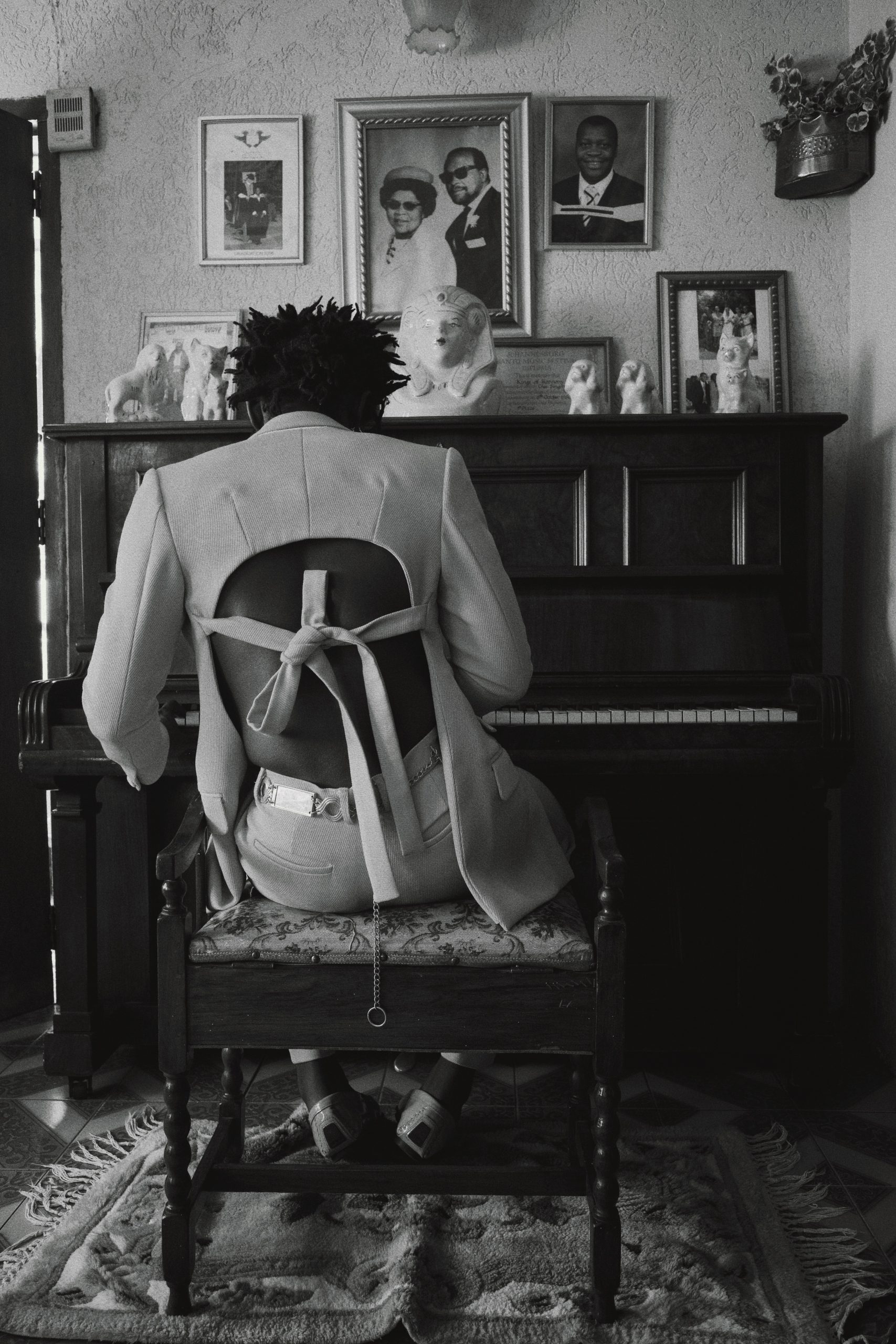
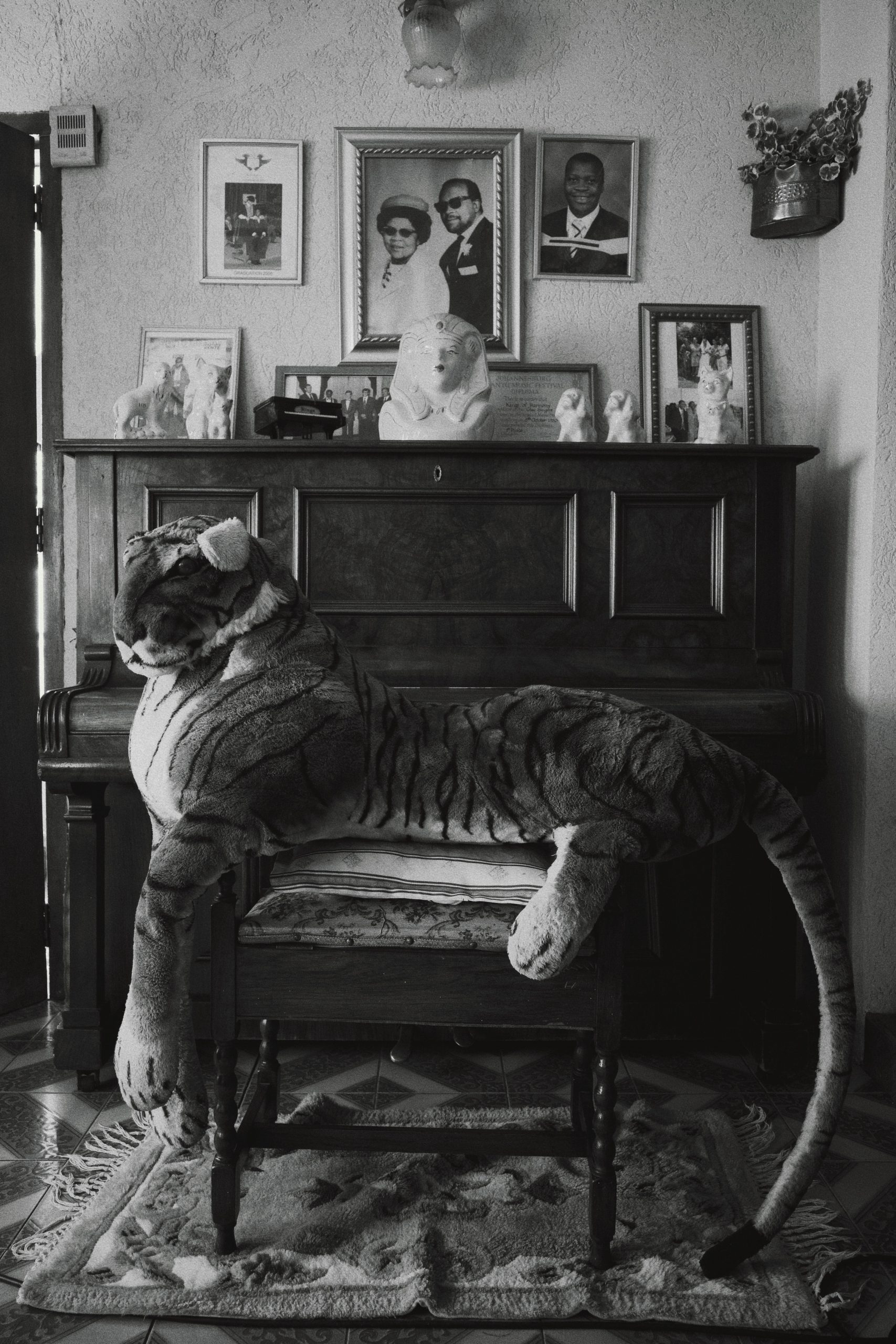
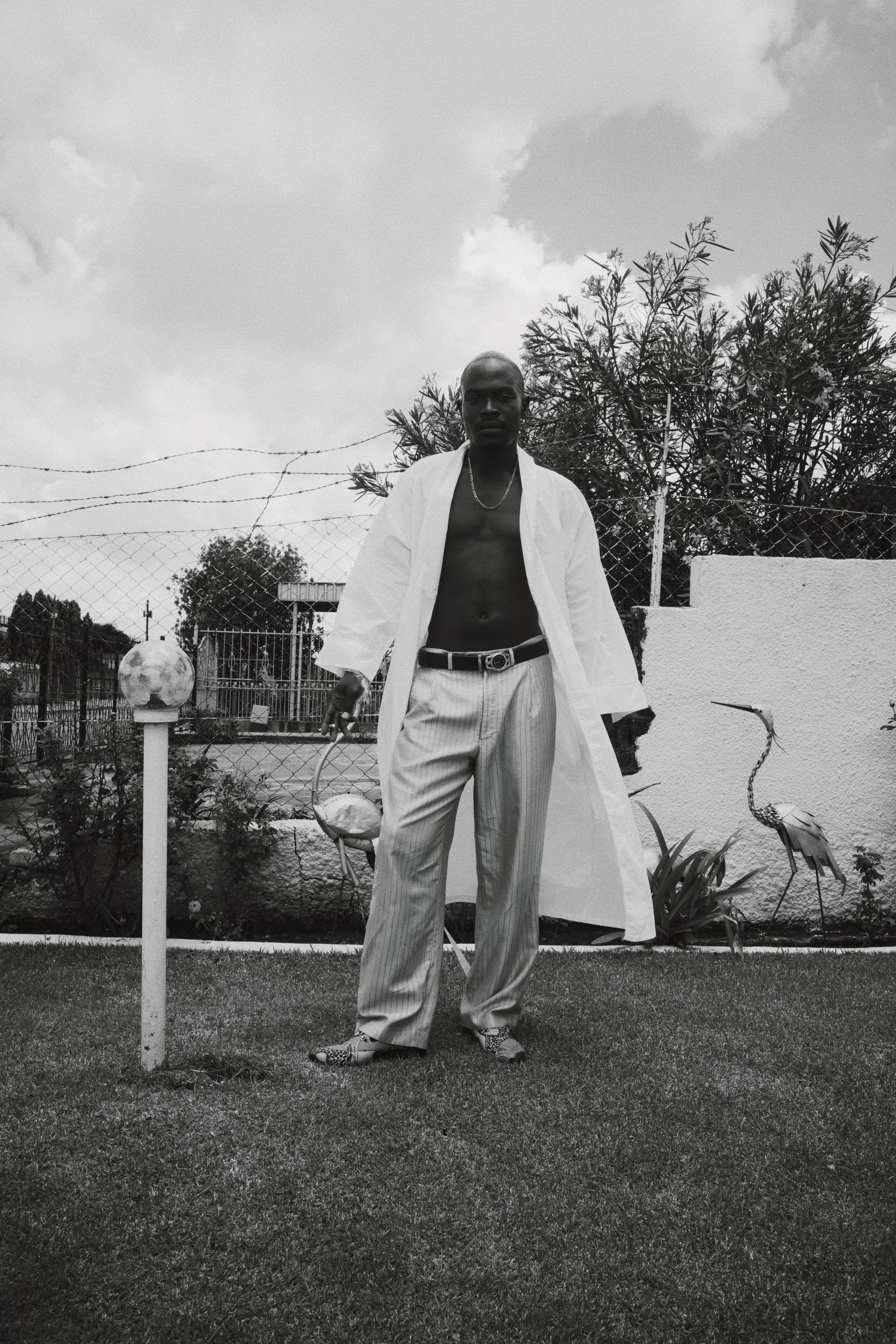
CREDITS:
Cast:
Desire Marea
Thapelo Molefe
Lebo Otukile
Kagiso Kuypers
Slindile ‘Sesh’ Mjoli
Tsholo Ndaba
Lowembo Takoy
Director: Imraan Christian
Producer: Will Nicholson
Production Manager: Mangi Mbileni
Creative Producer: Marty Bleazard
Unit Manager: Lovers Monene
Unit Assistant: Mpho Monene
Cinematography: Marty Bleazard & Imraan Christian
Focus Puller: Jason Haji-Joannou
Steadicam: Deon Wermeulen & Werner Nortjie
Gaffer: Alan Thorpe
Production Designer: Gerhard Van Zyl
Art Director: Werner Snyman
Coordinator: Norma Wildenboer
Coordinator: Tiaan Volschenk
Wardrobe Stylist: Amy Zama
Wardrobe Assistant: Siyabonga Mtshali
Hair and Make-Up: Tammi Mbambo
Choreography: Tarryn Alberts
Intimacy Co-Ordinator: Maude Sandham
Editor: Shelby Ncube
Colourist: Nic Apostoli
Online/ VFX: Darian Simon
Producers: Bevil Schwartz & Manuel Monteiro
Final Mix: Field Audio
Creative Researcher: Diana Smith
Be Free
Written by Buyani Duma and Sanele Ngubane
Produced by Desire Marea, Sanele Ngubane and Thuthuka Sibisi
Engineered by Jacques Du Plessis. Assisted by Onkgopotse Tiro
Mixed by Marta Salogni
Mastered by Matt Colton at Metropolis
Performed by Desire Marea, Sibusiso Mashiloane (keys), Portia Sibiya (bass), Sibusiso Zondi (drums), Andrei Van Wyk (guitar), Lwanda Gogwana (trumpet), Leroy Mapholo (violin), Alex Hitzeroth (trombone)



















































